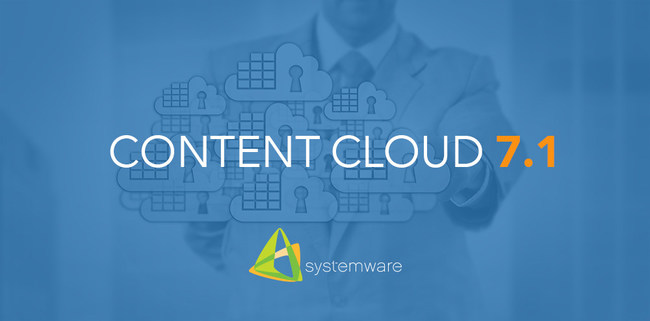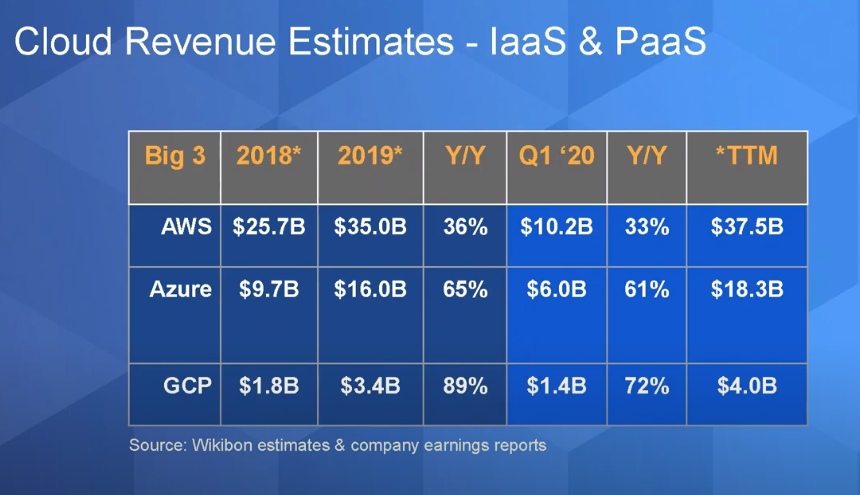“As AWS Summit Online wraps, analysts discuss public-cloud strategies for surviving COVID-19 - SiliconANGLE” plus 1 more
“As AWS Summit Online wraps, analysts discuss public-cloud strategies for surviving COVID-19 - SiliconANGLE” plus 1 more |
| Posted: 13 May 2020 06:00 PM PDT The ability to scale workloads up and down at will is one of the key attributes of cloud, and one that is critical during a crisis. From the crash of 2008 to the disruptions of COVID-19 in 2020, cloud adoption has been boosted by economic disasters as companies look to flexibility to help them weather the downturn. As the global Amazon Web Services Inc.'s Summit Online wrapped up today, John Furrier, Dave Vellante and Stu Miniman, co-hosts of theCUBE, SiliconANGLE Media's livestreaming studio, discussed key insights from the event. Topics covered include the keynote by Werner Vogels, Amazon.com Inc.'s vice president and chief technology officer; who's winning in the perennial battle for public cloud supremacy; and strategies for surviving and succeeding under the constraints of COVID-19. (* Disclosure below.) AWS provides a solid foundation for prospering under COVID-19Vogels' keynote focused on Amazon's cloud services as the foundation for companies to build on, allowing rapid scale during good times, and bad. Citing examples of companies that have experienced unexpected surges in use during the pandemic, such as Netflix Inc., he discussed how Amazon is stepping up to support its customers. "Public cloud is being put under the spotlight right now," Furrier said. "Amazon, to their credit, is doing a real good job. We've not been hearing any challenges. They're not leaving their customers behind." "[Vogel talked about] COVID19 is not just about the technology, but it's about how we access applications, how we build applications," Vellante said. Amazon is betting on data and video, according to Vellante. "Clearly Amazon is seeing a huge demand for video services," he said, referring to the Amazon Prime network that holds second place behind Netflix for viewing in April 2020. "We're seeing a giant disruption in content distribution networks, and Amazon, I think, is at the heart of that." All clouds are equal, but some are more equal than othersThe big three cloud providers — Amazon, Google and Microsoft Inc. — just reported cloud revenue estimates, and, "If you just look at raw numbers, you know Amazon's just adding another Google Cloud like every quarter to their to their revenue," Miniman said. But while Amazon is still the clear leader in terms of revenue, Azure and Google Cloud Platform are growing faster. "You are seeing Azure close that gap," Vellante said.
"Where are Microsoft and Google going after Amazon? Where they can," Miniman said. Retail partnerships may be harder for Amazon to secure than its cloud competitors. "The fear of many companies is: 'If I partner with Amazon, are they going to come after my business?'" Miniman said. But although they may be rivals for business, "it is important to point out that these clouds have different capabilities," Vellante added. COVID-19 forces tough business decisionsBusinesses are being forced to make some tough calls right now, doubling down on growth projects and laying off or redeploying staff working in unprofitable areas, Vellante pointed out. He noted AWS Chief Executive Officer Andy Jassy's concept of one-way door decisions versus two-way door decisions. "The former cannot be undone, hence need to be thought over," he said. "It's about the need to have optionality," Miniman added. "2020 is a key example of having to react to things that we weren't prepared for." He noted how Amazon has been a "walled garden" in the past but is now softening its stance to open-source and hybrid-cloud strategies. "When you talk about emerging technologies like serverless and edge computing, is it the Amazon way … or will they play in an open ecosystem? Will they allow things to be more flexible?" Miniman asked. In crises, "companies that came out on the upswing became real master-class examples of growth," Furrier said. And cloud is shaping up to do better than most industries from the COVID-19 pandemic. "It's not surprising," Vellante stated. "Companies that previously wouldn't even think about cloud, now they really have no choice." Here's the complete video analysis, part of SiliconANGLE's and theCUBE's coverage of the AWS Summit Online event. (* Disclosure: TheCUBE is a paid media partner for the AWS Summit Online event. Neither Amazon Web Services, the sponsor for theCUBE's event coverage, nor other sponsors have editorial control over content on theCUBE or SiliconANGLE.) Photo: SiliconANGLESince you're here …Show your support for our mission with our one-click subscription to our YouTube channel (below). The more subscribers we have, the more YouTube will suggest relevant enterprise and emerging technology content to you. Thanks! Support our mission: >>>>>> SUBSCRIBE NOW >>>>>> to our YouTube channel. … We'd also like to tell you about our mission and how you can help us fulfill it. SiliconANGLE Media Inc.'s business model is based on the intrinsic value of the content, not advertising. Unlike many online publications, we don't have a paywall or run banner advertising, because we want to keep our journalism open, without influence or the need to chase traffic.The journalism, reporting and commentary on SiliconANGLE — along with live, unscripted video from our Silicon Valley studio and globe-trotting video teams at theCUBE — take a lot of hard work, time and money. Keeping the quality high requires the support of sponsors who are aligned with our vision of ad-free journalism content. If you like the reporting, video interviews and other ad-free content here, please take a moment to check out a sample of the video content supported by our sponsors, tweet your support, and keep coming back to SiliconANGLE. |
| Posted: 14 May 2020 09:02 AM PDT DALLAS, May 14, 2020 /PRNewswire/ -- Systemware, Inc., an industry pioneer in enterprise content management, has announced the release and availability of Content Cloud 7.1. Content Cloud is an innovative content services platform that intelligently manages critical business information for many of the world's largest organizations. This latest update to Content Cloud includes new containerized and scripted deployment options, multifactor authentication, and personalized multilingual UI options. In addition, simplified scaling capabilities utilizing nodesets enable organizations to deploy Content Cloud seamlessly in external cloud platforms such as AWS, Microsoft Azure, IBM Cloud, Google Cloud, and more. Content Cloud 7.1 delivers optimized performance in public, private or hybrid cloud environments, as well as a fully hosted SaaS offering.  "From our beginning, Systemware has always been about providing our customers with powerful yet flexible software," says Pat Sheehan, Vice President of Development at Systemware. "Content Cloud 7.1 expands on this flexibility, allowing our customers to have the exact amount of processing power they need, right when they need it. New nodes can deploy in a matter of minutes, satisfying processing needs while offering increased horizontal scalability for better redundancy and failover." The underlying architecture for Systemware Content Cloud 7.1 has been enhanced from the ground up, offering support for Docker containers using the open-source Kubernetes orchestration platform. "By including support for Docker containers and scripted implementation, Systemware Content Cloud 7.1 offers a rapidly scalable infrastructure that is built and optimized for cloud deployments," explains David Basso, Vice President of Sales and Marketing at Systemware. "Content Cloud 7.1 offers industry-leading content indexing, search, and management capabilities in a way that is easier to implement and scale while offering the security and customization options that our customers expect." As part of a full suite of security capabilities, Content Cloud 7.1 includes support for TLS encrypted communication between all nodes to support a growing and ever-changing regulatory compliance landscape. Systemware's advanced compliance features provide secure encryption for content while in transit and at rest, data masking for access and display of sensitive information, event-based retention, and a wide range of robust user and group administration capabilities. "The amount of data organizations manage is increasing exponentially, while new regulations such as GDPR and the California Consumer Protection Act require them to quickly locate, retrieve and remove specific elements of data within these massive datasets," says Frankie Basso, President and Chief Operating Officer at Systemware. "With Content Cloud 7.1, administrators can deploy systems that can address these rapidly changing content management needs, whether they are deploying in the public cloud, in their own data centers or any combination thereof." For more information, call Systemware to speak with a content services expert: 844.343.0200. PR Contact: Debbie McDaniel Related Files Systemware-Hosted-Solution.pdf Related Images systemware-content-cloud.jpg Related Links Managing Data Protection for Content Compliance Systemware helps one of the world's largest financial institutions SOURCE Systemware, Inc.  |
| You are subscribed to email updates from "google cloud event" - Google News. To stop receiving these emails, you may unsubscribe now. | Email delivery powered by Google |
| Google, 1600 Amphitheatre Parkway, Mountain View, CA 94043, United States | |

Comments
Post a Comment